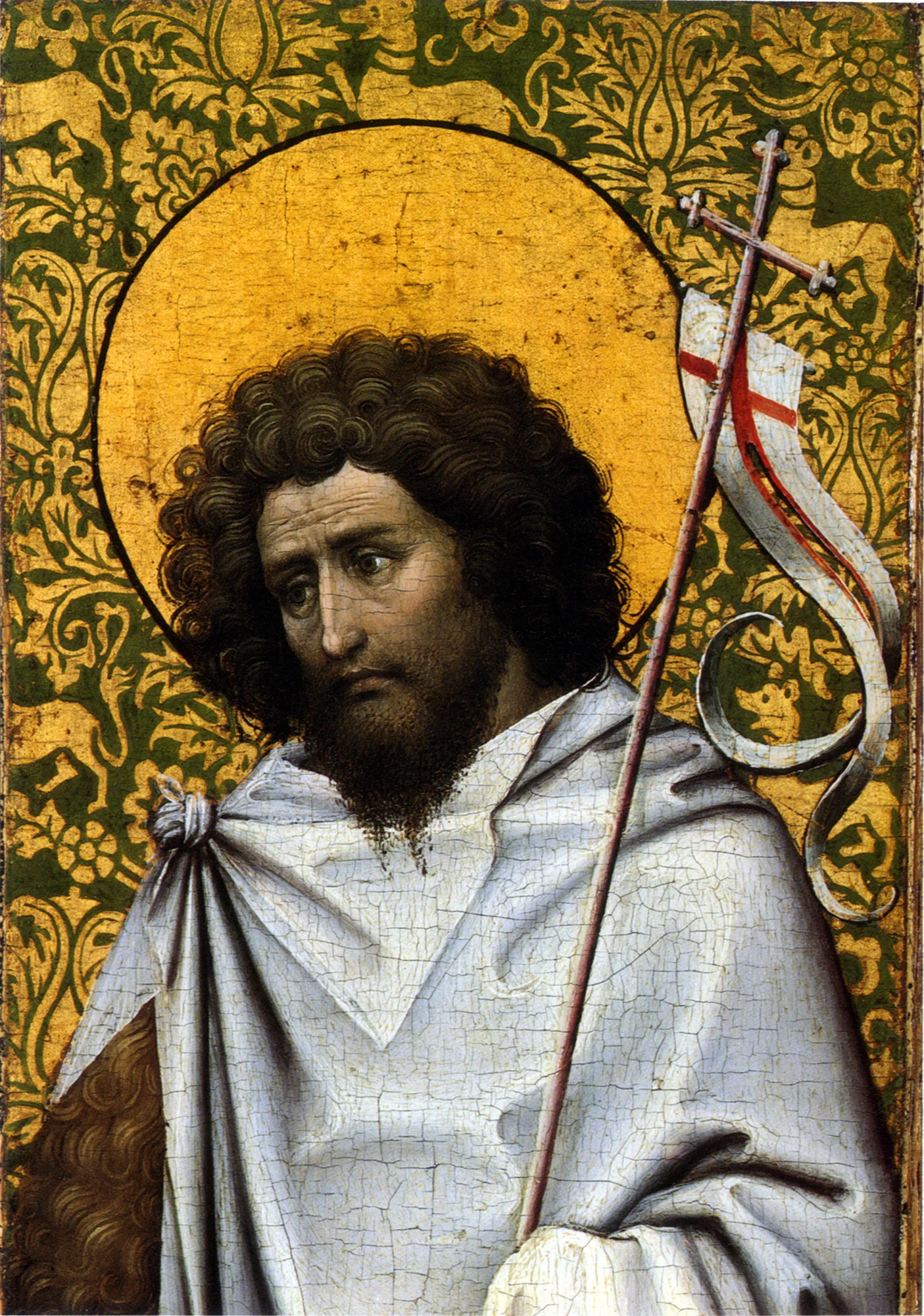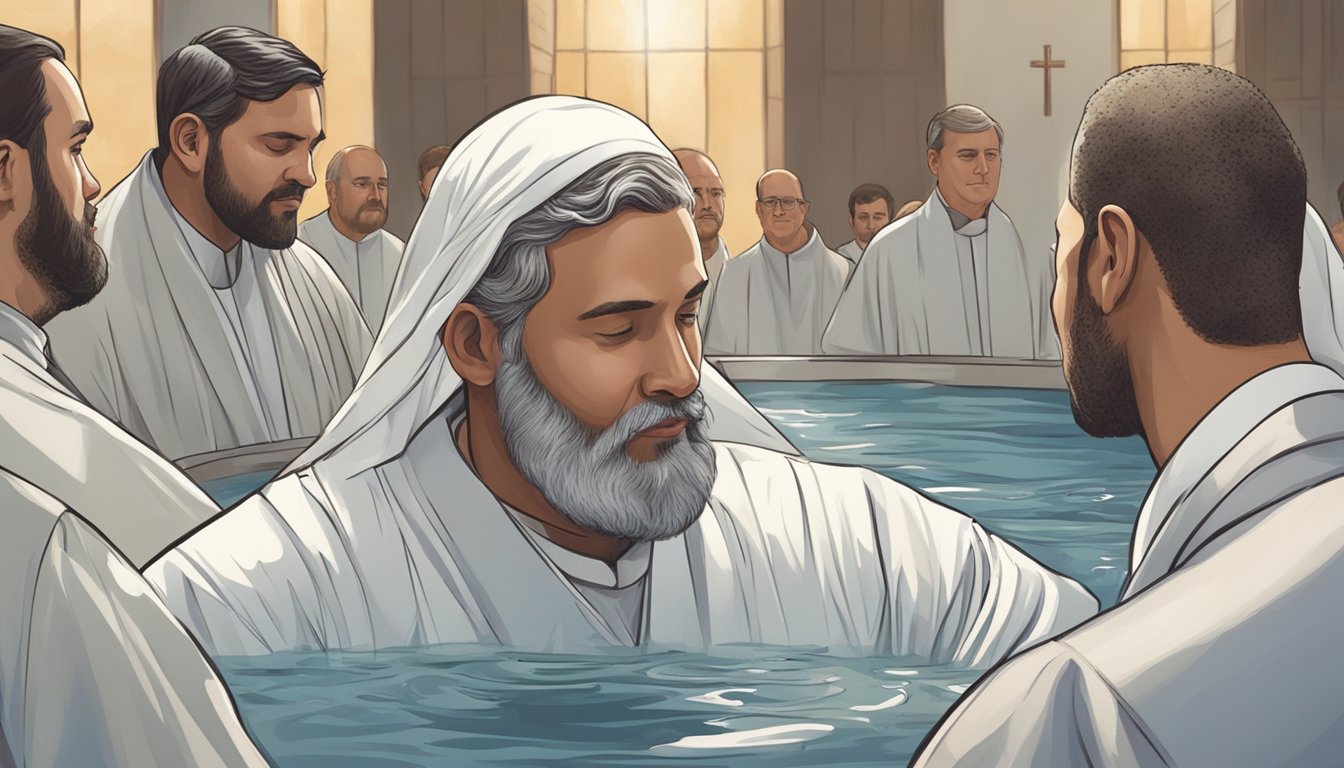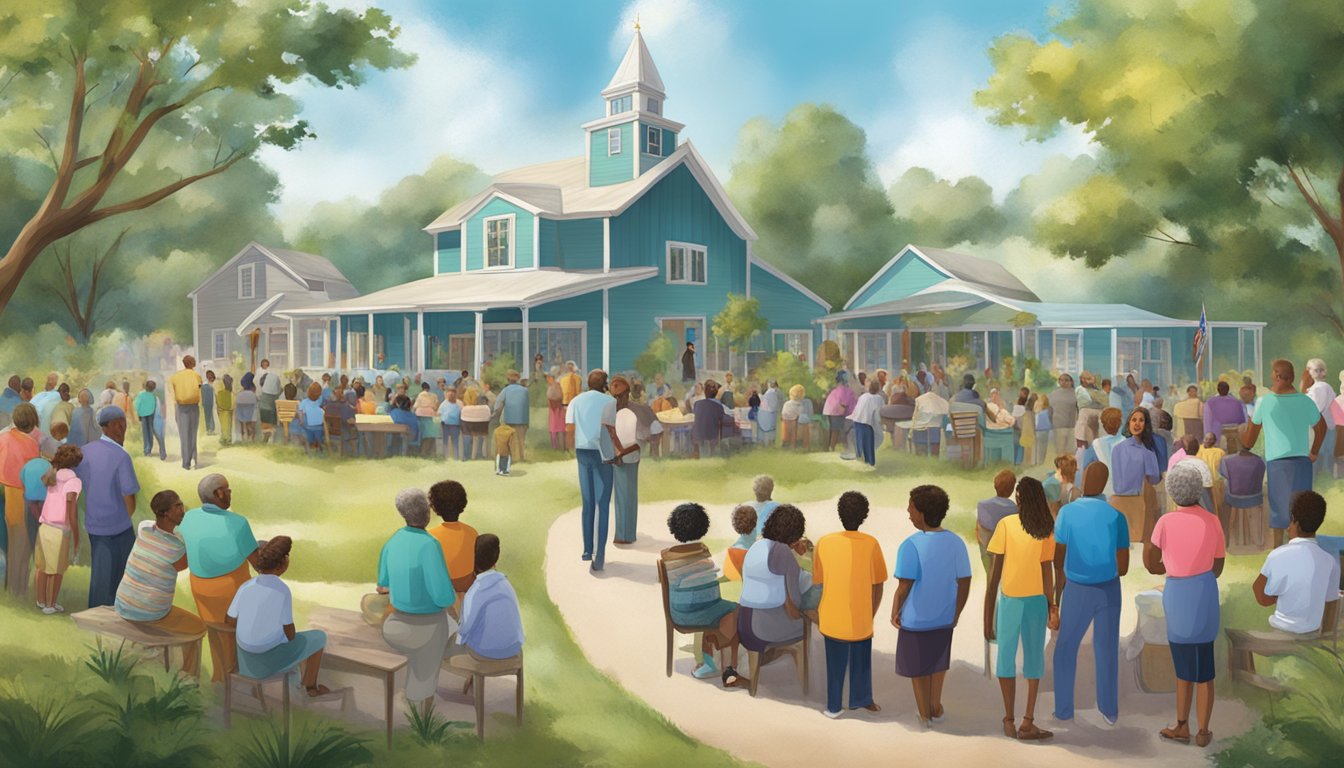Baptist is a Christian denomination that has its roots in the 17th century English Puritan movement. The Baptist faith is based on the belief that salvation is obtained through faith in Jesus Christ alone, and that baptism is a public declaration of that faith. The Baptist denomination has grown to become one of the largest Protestant denominations in the world, with millions of followers in the United States and around the world.

The question of whether Baptist is a Christian denomination may seem straightforward, but it is actually a topic of much debate and controversy. Some argue that Baptist is not a Christian denomination because of its distinctive beliefs and practices, while others argue that Baptist is indeed a Christian denomination because it is based on the teachings of Jesus Christ. Regardless of one’s view on the matter, it is clear that Baptist is a denomination that has had a profound impact on the Christian faith, and that it continues to be an important part of the religious landscape today.
Key Takeaways
- Baptist is a Christian denomination that has its roots in the 17th century English Puritan movement.
- The Baptist faith is based on the belief that salvation is obtained through faith in Jesus Christ alone, and that baptism is a public declaration of that faith.
- The question of whether Baptist is a Christian denomination is a topic of much debate and controversy.
Historical Roots of Baptists
https://www.youtube.com/watch?v=4QPWGEAkXbE&embed=true

Baptists are a group of Protestant Christians who share the basic beliefs of most Protestants but who insist that only believers should be baptized and that it should be done by immersion rather than by sprinkling or pouring of water. Although Baptists do not constitute a single church or denominational structure, most Baptists trace their origins to the English Separatist movement of the 17th century.
Early Beginnings and Key Figures
The early beginnings of the Baptist movement can be traced back to the 17th century in England, where a group of separatists led by John Smyth broke away from the Church of England. Smyth, who had been a minister in the Church of England, rejected infant baptism and believed that baptism should be reserved only for adult believers who had made a conscious decision to follow Jesus Christ. Smyth and his followers formed the first Baptist church in 1609 in Amsterdam, Netherlands.
Another key figure in the early history of Baptists was Thomas Helwys, who was a member of Smyth’s congregation. After Smyth’s death, Helwys returned to England and formed the first Baptist church in England in 1612. Helwys, like Smyth, believed in the separation of church and state and that baptism should be reserved only for adult believers.
The Reformation and Baptist Emergence
The Protestant Reformation of the 16th century played a significant role in the emergence of the Baptist movement. The Reformation challenged the authority of the Roman Catholic Church and led to the formation of various Protestant denominations. The Baptist movement emerged as a distinct group within Protestantism in the 17th century.
Baptists were heavily influenced by the Anabaptist movement, which rejected infant baptism and believed that baptism should be reserved only for adult believers. The Anabaptists faced persecution from both the Catholic and Protestant churches, and many fled to England, where they had a significant impact on the development of the Baptist movement.
In conclusion, the historical roots of Baptists can be traced back to the 17th century in England, where a group of separatists led by John Smyth broke away from the Church of England. Baptists were heavily influenced by the Anabaptist movement and emerged as a distinct group within Protestantism in the 17th century.
Baptist Beliefs and Theology
https://www.youtube.com/watch?v=24Mf9K5Ee6Y&embed=true
Core Doctrines
Baptist beliefs are rooted in the Bible and centered on faith in Jesus Christ. Baptists believe in the Trinity, which is the belief that there is one God in three persons: the Father, the Son, and the Holy Spirit. They also believe in the sinfulness of humanity, salvation through faith in Christ, and the resurrection of the dead.
Baptists believe that salvation is available to all people who accept Jesus Christ as their Savior. They believe that salvation is a free gift from God, and that it cannot be earned through good works or any other means. Additionally, they believe that all people are sinners and that sin separates them from God. However, through faith in Jesus Christ, people can be reconciled to God and receive eternal life.
Baptism and Communion Practices
Baptists practice two ordinances: baptism and communion. They believe that baptism is an outward symbol of an inward change, and that it is a public declaration of faith in Jesus Christ. Baptists practice baptism by immersion, which means that the person being baptized is fully submerged in water. They believe that baptism is only for believers and that it should be done after a person has accepted Jesus Christ as their Savior.

Communion, also known as the Lord’s Supper, is a sacrament that commemorates the death and resurrection of Jesus Christ. Baptists believe that communion is a symbolic act and that it represents the body and blood of Christ. They believe that communion should be taken by believers, and that it is a time for reflection and remembrance of what Jesus Christ has done for them.
In summary, Baptist beliefs and theology are centered on faith in Jesus Christ, salvation through faith alone, and the Bible as the ultimate authority. They practice baptism by immersion and communion as symbolic acts of faith.
Church Structure and Leadership
https://www.youtube.com/watch?v=BkZKqoyCWJI&embed=true
Baptist churches are independent and autonomous, meaning they are self-governing and not subject to any external authority. This is known as the doctrine of local church autonomy. Each local church is responsible for its own affairs and decisions, including the selection of pastors and deacons.
Local Church Autonomy
Local church autonomy is a central tenet of Baptist theology. This means that each church is free to govern itself and make its own decisions without interference from outside sources. This autonomy extends to matters of doctrine, worship, and church discipline.
Roles of Pastors and Deacons
In Baptist churches, pastors are responsible for the spiritual leadership and direction of the church. They are the primary teachers of the Bible and are responsible for preaching and teaching during worship services. Deacons, on the other hand, are responsible for the practical needs of the church, such as caring for the sick and elderly, managing the church’s finances, and overseeing the physical upkeep of the church building.
« Is Halloween a Christian Holiday? Exploring the Origins and Religious Significance
Is Ghost a Christian Band? Exploring the Band’s Religious Themes »
In many Baptist churches, the congregation plays an active role in the selection of pastors and deacons. This is because of the belief in local church autonomy and the importance of the congregation in the life of the church. The congregation is typically involved in the decision-making process and may vote on matters such as the selection of pastors and deacons.
Overall, the structure and leadership of Baptist churches is centered around the autonomy of the local church and the importance of pastors and deacons in providing spiritual and practical leadership.
Baptist Denominations and Associations
https://www.youtube.com/watch?v=BWRG9T6UqDE&embed=true
Baptist is a Christian denomination that originated in England in the early 17th century. Today, the Baptist denomination is one of the largest and most diverse Christian denominations in the world, with millions of members across the globe.
Major Baptist Conventions

There are several major Baptist conventions in the United States, including the Southern Baptist Convention (SBC) and the American Baptist Churches USA (ABCUSA). The SBC is the largest Baptist denomination in the United States, with over 14 million members. The SBC is known for its conservative theology and its commitment to evangelism and missions. The ABCUSA, on the other hand, is a more liberal Baptist denomination that is committed to social justice and ecumenical cooperation.
Outside of the United States, the Baptist World Alliance (BWA) is the largest association of Baptist churches in the world. The BWA represents over 47 million Baptists in 177 countries. The BWA is committed to promoting Baptist unity, evangelism, and social justice around the world.
Diversity within Baptist Groups
While all Baptist churches share a common commitment to believer’s baptism and congregational governance, there is a great deal of diversity within the Baptist denomination. For example, some Baptist churches are more conservative in their theology and practice, while others are more liberal. Some Baptist churches are affiliated with a particular convention or association, while others are independent.
In addition to the SBC and ABCUSA, there are many other Baptist denominations and associations around the world. These include the National Baptist Convention, USA, the Progressive National Baptist Convention, the Baptist Union of Great Britain, and the Canadian Baptists of Western Canada, among others.
Overall, the Baptist denomination is a diverse and vibrant expression of the Christian faith. While there are many differences among Baptist churches and conventions, they all share a common commitment to the gospel of Jesus Christ and to spreading that gospel to the ends of the earth.
Baptist Worship and Sermon

https://www.youtube.com/watch?v=umhRRedtrlc&embed=true
Baptist worship services are known for their simplicity and focus on Biblical teachings. The style of worship is generally informal and flexible, with an emphasis on heartfelt expressions of faith and individual participation. As a Christian denomination, Baptist worship shares many common elements with other Christian denominations, but also has some unique characteristics.
The Role of the Sermon
A sermon is a major part of a Baptist worship service, with the preacher having the freedom to choose the topic, theme, type, and text. The denomination does not dictate any of these factors. The style of preaching is also up to the preacher, with some reading from a manuscript while most preach from notes or extemporaneously. The sermons often emphasize the importance of personal faith and salvation, and may last anywhere from 30 minutes to an hour.
Music and Prayers in Worship
Baptist worship services typically focus on communal prayer, congregational singing, and Biblical teachings. The music is often traditional hymns or contemporary Christian songs that are meant to inspire and uplift the congregation. The prayers are usually led by the pastor or a member of the congregation, and may include requests for healing, guidance, and thanksgiving.
In Baptist churches, the worship service is considered a time of fellowship and community, where members can come together to worship and support one another. The focus is on the teachings of Jesus Christ and the importance of living a life of faith and service.
Baptist Missions and Evangelism

https://www.youtube.com/watch?v=ja5eeYBp4-M&embed=true
Baptists have a rich history of missionary work and evangelism, with a strong emphasis on spreading the gospel of Jesus Christ to all corners of the world. This section will explore the historical and contemporary efforts of Baptists in these areas.
Historical Missionary Work
Baptist missionary work dates back to the early 1800s, when Adoniram Judson and his wife Ann arrived in Burma to begin their mission work. This was followed by the establishment of the American Baptist Missionary Union in 1814, which sent out numerous missionaries to places such as India, China, and Africa. The Southern Baptist Convention also has a long history of missionary work, with their first foreign mission board being established in 1845.
The missionary efforts of Baptists have been motivated by their faith in God and their desire to spread the message of salvation through Jesus Christ. They believe that it is their duty to share the gospel with those who have not yet heard it, and to demonstrate the love of Christ through their actions.
Contemporary Evangelistic Efforts
Today, Baptists continue to be active in evangelistic efforts both at home and abroad. Many Baptist churches have outreach programs designed to reach out to their local communities and share the message of Christ. They also support mission work in other countries, sending out missionaries to places where the gospel has not yet been preached.

Contemporary evangelistic efforts often involve a combination of traditional methods such as preaching and personal evangelism, as well as more modern methods such as social media and online outreach. Baptists are also involved in disaster relief efforts, providing aid and support to those affected by natural disasters and other crises.
In conclusion, Baptist missions and evangelism are an integral part of their faith and have been for centuries. Their efforts are motivated by their love for God and their desire to share the message of salvation through Jesus Christ with as many people as possible.
Religious Liberty and Baptists
https://www.youtube.com/watch?v=PzvzzgcxDf8&embed=true
Baptists have a long history of advocating for religious liberty and freedom of conscience. This is rooted in their belief that true worship of God must be voluntary and not coerced. Baptists believe that the government should not interfere with the individual’s relationship with God.
Separation of Church and State
Baptists were among the first groups to advocate for the separation of church and state. Roger Williams, the founder of Rhode Island, was a Baptist who believed that the government should not have any authority over matters of faith. He believed that the state should not be involved in any way in religious affairs. This idea was later enshrined in the First Amendment to the United States Constitution.
Advocacy for Religious Freedom

Baptists have always been strong advocates for religious freedom. They believe that every person has the right to worship according to their own conscience, and that the government should not interfere with this right. Baptists have been involved in many important religious freedom cases throughout history. For example, in the 18th century, Baptist preachers were often jailed for preaching without a license. The Baptists fought against this practice and eventually succeeded in having the licenses abolished.
Today, there are many Baptist organizations that work to protect religious freedom and promote religious liberty around the world. One of these organizations is the Baptist Joint Committee for Religious Liberty in Washington, D.C. The Baptist Joint Committee was founded by Southern Baptists in 1936 as a watchdog for religious liberty. The organization works to promote religious freedom and to protect the separation of church and state.
In conclusion, Baptists have a long history of advocating for religious liberty and freedom of conscience. They believe that every person has the right to worship according to their own conscience, and that the government should not interfere with this right. Baptists have been involved in many important religious freedom cases throughout history, and continue to work to protect religious freedom and promote religious liberty today.
Baptist Influence in Society
Baptists in the United States
Baptists have had a significant influence on American society, particularly in the area of religion. According to the Pew Research Center, Baptists are the largest Protestant denomination in the United States, making up about 15% of the population. The two largest Baptist groups in the country are the American Baptist Churches USA and the Southern Baptist Convention.

In addition to their religious influence, Baptists have also had an impact on American politics. Many Baptist leaders have been involved in political movements and have advocated for social and political change. For example, Martin Luther King Jr., a Baptist minister, was a prominent leader in the civil rights movement of the 1950s and 1960s.
Global Baptist Impact
Baptists have also had a significant impact on society on a global scale. According to the Baptist World Alliance, there are over 47 million Baptists in the world, making them one of the largest Christian denominations. Baptists are particularly influential in countries like England, where they have a long history and have played a significant role in shaping the country’s religious landscape.
In addition to their religious influence, Baptists have also been involved in social and political movements around the world. For example, Baptist leaders in South Africa played a key role in the anti-apartheid movement, and many Baptist churches in Latin America have been involved in efforts to promote social justice and economic equality.
Overall, Baptists have had a significant impact on society both in the United States and around the world. Through their religious and political influence, they have helped shape the course of history and continue to play an important role in the modern world.
Contemporary Issues and Challenges
https://www.youtube.com/watch?v=eJRkb6dcAQk&embed=true
Debates on Theological Views

Baptists, like any other Christian denomination, are not without their theological debates. One of the most significant debates is the tension between conservative and liberal theological views. Conservative Baptists tend to emphasize the authority of the Bible and the importance of personal salvation through faith in Jesus Christ. On the other hand, liberal Baptists are more likely to emphasize social justice issues and the importance of community involvement.
Another theological debate among Baptists centers around Calvinism and Arminianism. Calvinism emphasizes the sovereignty of God in salvation, while Arminianism emphasizes the free will of humanity. Some Baptists are strict Calvinists, while others are strict Arminians, and still, others fall somewhere in between.
Social and Cultural Engagement
In recent years, Baptists have faced several social and cultural challenges. One of the most significant challenges is the issue of equality. Many Baptists have been vocal in their opposition to discrimination based on race, gender, or sexual orientation. However, there are still some conservative Baptists who hold to traditional views on these issues.
Another challenge facing Baptists is how to engage with social and cultural issues. Some Baptists believe that the church should be involved in politics and social justice issues, while others believe that the church should focus solely on evangelism and spiritual growth. This tension has led to debates within Baptist communities about the role of the church in the larger society.
Overall, Baptists face many of the same challenges as other Christian denominations. While there are debates and tensions within Baptist communities, there is also a shared commitment to the gospel of Jesus Christ and the importance of living out one’s faith in the world.
Baptist Family and Community Life

Baptists are a part of the larger Christian family and community, with a distinct set of beliefs and practices that set them apart from other denominations. They believe in the authority of the Bible and the autonomy of the local church, meaning that each congregation is self-governing and responsible for its own affairs.
Baptist families often prioritize faith and community involvement, with regular attendance at church services and participation in church-sponsored events. Family and community life are intertwined, with many churches offering programs for children, youth, and adults to strengthen relationships and build community.
The concept of the “first Baptist” church is important in Baptist tradition, with many churches tracing their roots back to the first Baptist congregation in a particular area. This emphasis on history and tradition is reflected in many Baptist churches’ names, such as First Baptist Church of [City Name].
Baptist congregations are often led by a pastor, who is responsible for preaching, teaching, and providing spiritual guidance to the congregation. Deacons and other church leaders may also play important roles in the life of the church.
Overall, Baptist family and community life is centered around faith, with a strong emphasis on community involvement and building relationships with others in the congregation.
Frequently Asked Questions
https://www.youtube.com/watch?v=H58SR8ZdilQ&embed=true
What are the core beliefs and practices of Baptists?
Baptists are Christians who believe in the Bible as the ultimate authority in matters of faith and practice. They believe in salvation through faith in Jesus Christ alone and that baptism by immersion is a public profession of faith. They also believe in the autonomy of the local church and the priesthood of all believers.
How do Baptist doctrines differ from other Christian denominations?
Baptists differ from other Christian denominations in their emphasis on individual freedom and responsibility in matters of faith. They do not have a centralized hierarchy or governing body, but rather each church is autonomous and responsible for its own affairs. They also reject the idea of infant baptism and instead believe in baptism by immersion as a public profession of faith.
Can you explain the history and development of the Baptist Church?
The Baptist Church has its roots in the Protestant Reformation of the 16th century, but it was not until the 17th century that the first Baptist church was established in England. The Baptist movement spread to America in the 18th century, where it grew rapidly. Today, there are many different Baptist denominations, each with their own distinct beliefs and practices.
What are some of the unique rules or guidelines that Baptists follow?
Baptists do not have a set of rules or guidelines that all churches must follow, but there are some common practices among Baptist churches. For example, many Baptist churches do not use musical instruments in worship, and some do not allow women to serve as pastors or deacons. However, these practices vary widely among different Baptist churches.
How do Baptist baptism rituals compare to those of other Christian denominations?
Baptists believe in baptism by immersion as a public profession of faith, while other Christian denominations may practice baptism by pouring or sprinkling. Baptism is seen as an outward symbol of an inward spiritual transformation, and is not believed to be necessary for salvation.
In what ways do Baptist and Catholic teachings and worship practices differ?
Baptists and Catholics differ in their beliefs about the role of the church in salvation. Catholics believe that salvation is achieved through faith and good works, while Baptists believe that salvation is achieved through faith alone. Additionally, Catholic worship practices include the use of sacraments and rituals, while Baptist worship practices tend to be more simple and focused on preaching and prayer.



















